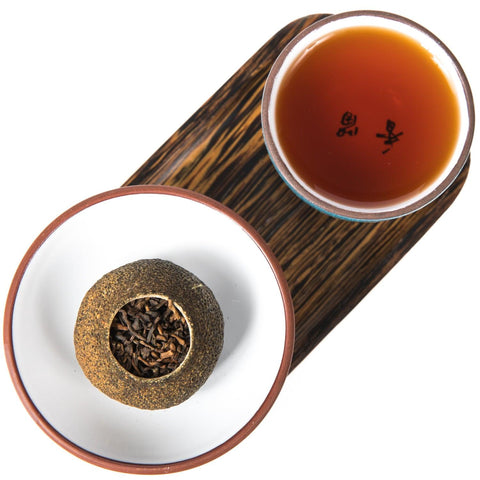Indeed, balancing our internal energies is crucial for a relaxed and healthy body. Traditional Chinese Medicine (TCM) has been around for thousands of years. According to this ancient knowledge, all teas are either cooling or heating. Furthermore, understanding the properties of tea may help us make more conscious choices when choosing a tea for the soul for our gongfu session.

What Is Traditional Chinese Medicine?
In its entirety, Traditional Chinese Medicine combines various herbs and teas, acupuncture, massage, diet and Qi Gong (a Chinese exercise). An integral part of Chinese Medicine is Qi energy (pronounced as "tchi" or "tsi") and the heating (yang) and cooling (yin) properties of foods and drinks. TCM targets the origin of the disease and implements a long holistic healing method instead of a quick cure.
Traditional Chinese Medicine is a complete medical system that practitioners have been using to diagnose, treat, and prevent illnesses for over 2,500 years. TCM is a belief that when yin and yang are in balance, you feel relaxed and energized. However, when out of balance, yin and yang negatively affect your health.
TCM practitioners also believe that everybody has a life force or energy, known as Qi ("tchi" or "tsi"). Hence, for yin and yang to be balanced, Qi must be sufficient and flow freely through the body. Then, the body will retain its healthy state. When there is a disbalance of Qi or when the flow of Qi is blocked, illness occurs.
TCM treatment strives to balance yin and yang by encouraging the natural flow of Qi.
Traditional Chinese Medicine and Tea For The Soul
Indeed, different types of tea also possess different energies. Some teas are cooling, while others are heating. Naturally, keeping these energies in balance is a vital component of Traditional Chinese Medicine. According to TCM, practitioners define cooling and heating teas by their energies and qualities, not their temperature.
Heat and cold are not the only properties in Chinese Medicine, but so are moisture and dryness. Practitioners use various loose leaf teas in Chinese Medicine to balance our body's Qi. We like to call it tea for the soul.
Yin — cold energy. You may get cold easily, feel weak, and be prone to colds.
Yang — hot energy. You may feel hot, sweaty, have dry skin, and easily irritable.

Cooling Tea
TCM employs cooling teas to balance bodies with an excess of heat. This doesn't necessarily mean that we drink these teas to cool down. However, it can help us refresh as well. Thus, cooling teas are great when the heat in your body is out of balance. Notably, one of the signs of this is inflammation.
All teas that undergo minimal to no oxidation are cooling—for example, white and green teas and light oolongs.
Furthermore, raw pu-erh is also a cooling tea. Indeed, practitioners have been using pu-erh tea under Traditional Chinese Medicine for centuries. Read more.
Heating Teas
Heating teas are great for those who have an excess of cold in their bodies. We know we have a surplus of cold quite literally if we get cold easily, and it takes us time to warm up. Or if our blood flow is slow.
Highly oxidized or fermented teas like black teas and ripe pu-erh, are excellent heating teas that help increase blood flow in our bodies.
Neutral Teas
If your Qi is in balance, neutral teas are the way to go. These are usually medium oxidized or roasted teas—for example, dark and roasted oolong. Furthermore, they suit people of all body types.
Tea For Digestion
You might have come across "weight loss tea" before. While we won't claim that some magical tea will help you lose weight at lightning speed, we would like to shine a light on a fermented tea from China. Pu-erh, which is a Chinese fermented tea, is ideal for digestion. Its enzymes gently wake up the stomach, body, and mind. Naturally, improving digestion is one step that helps us lose weight. Read more.
Tea For Nausea
According to TCM, chenpi tea helps alleviate nausea.
Tea That Helps With Headaches
Following the teachings of Chinese Medicine, green teas help combat headache symptoms. Also, GABA tea could be good for headaches as it helps to lower blood pressure.
